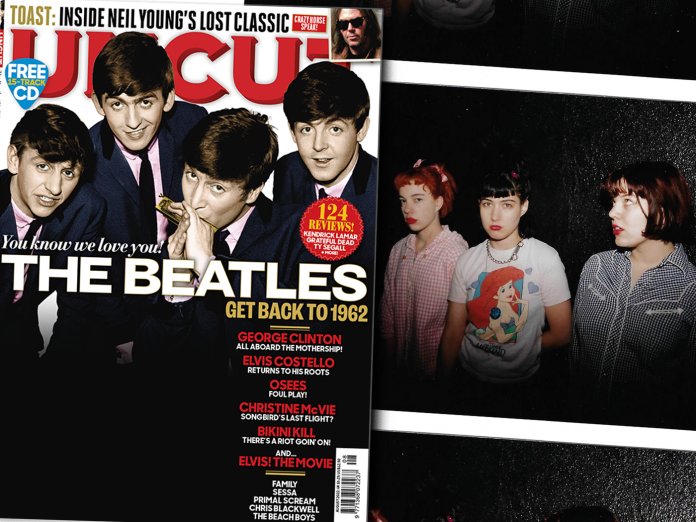“The power of "Rebel Girl" is that it’s about being a feminist pirate, being an adventurer,” says Bikini Kill singer Kathleen Hanna. “It’s not about standing at the back and not participating. It’s about loving and defending your friends and the confusion between friendship and sexuality...
“The power of “Rebel Girl” is that it’s about being a feminist pirate, being an adventurer,” says Bikini Kill singer Kathleen Hanna. “It’s not about standing at the back and not participating. It’s about loving and defending your friends and the confusion between friendship and sexuality.”
When Bikini Kill formed in 1990, sexism was rife. Hanna’s Riot Grrrl fanzine and the feminist-activist movement was one way to combat that; “Rebel Girl” was another. Over a glam drumbeat and three scuzzy chords, the song celebrated strong, defiant women. Written in late 1991, it quickly became a crowd-pleaser. When Bikini Kill toured the UK with Huggy Bear in 1993, the audience screamed for the still-unreleased song, latching on to this defiant expression of female identity and friendship where “dudes aren’t even mentioned”, notes bassist Kathi Wilcox.
Three versions of “Rebel Girl” were released. The one that usually appears on radio, soundtracks and video games was produced by Joan Jett, who saw something of her younger self in Bikini Kill. “They were unapologetic, doing what they wanted to do, and you didn’t see a lot of that, particularly with women,” she says. After hearing a cassette of Bikini Kill, she suggested they record “Rebel Girl” together and the band jumped at the chance.
This “definitive” version of “Rebel Girl” was recorded in the summer of 1993 in Seattle, with Jett on rhythm guitar and backing vocals. This single was released in September 1993, providing Bikini Girl – and the wider Riot Grrrl scene – with an anthem while giving the band a sense of vindication. Three-quarters of Bikini Kill were women and even in the political DC punk scene, women were poorly treated, dismissed as “coathangers” whose role was to stand at the back holding the coats while their boyfriend was moshing.
Bikini Kill reunited in 2019 and “Rebel Girl” is now sung proudly by women young and old. “Because the song is sung from the first person towards another first person, I have a lot of people I can direct that song to,” says Hanna. “It can be in a sexy way or just women I would totally throw down for. Sometimes I will see a seven-year-old girl in the front row and I am singing it to her. When my mum was in the audience, I dedicated to her. Not all the lyrics fit, of course. But singing about looking up to somebody and wanting to be like them – that is part of my relationship with my mum and so many other women.”



